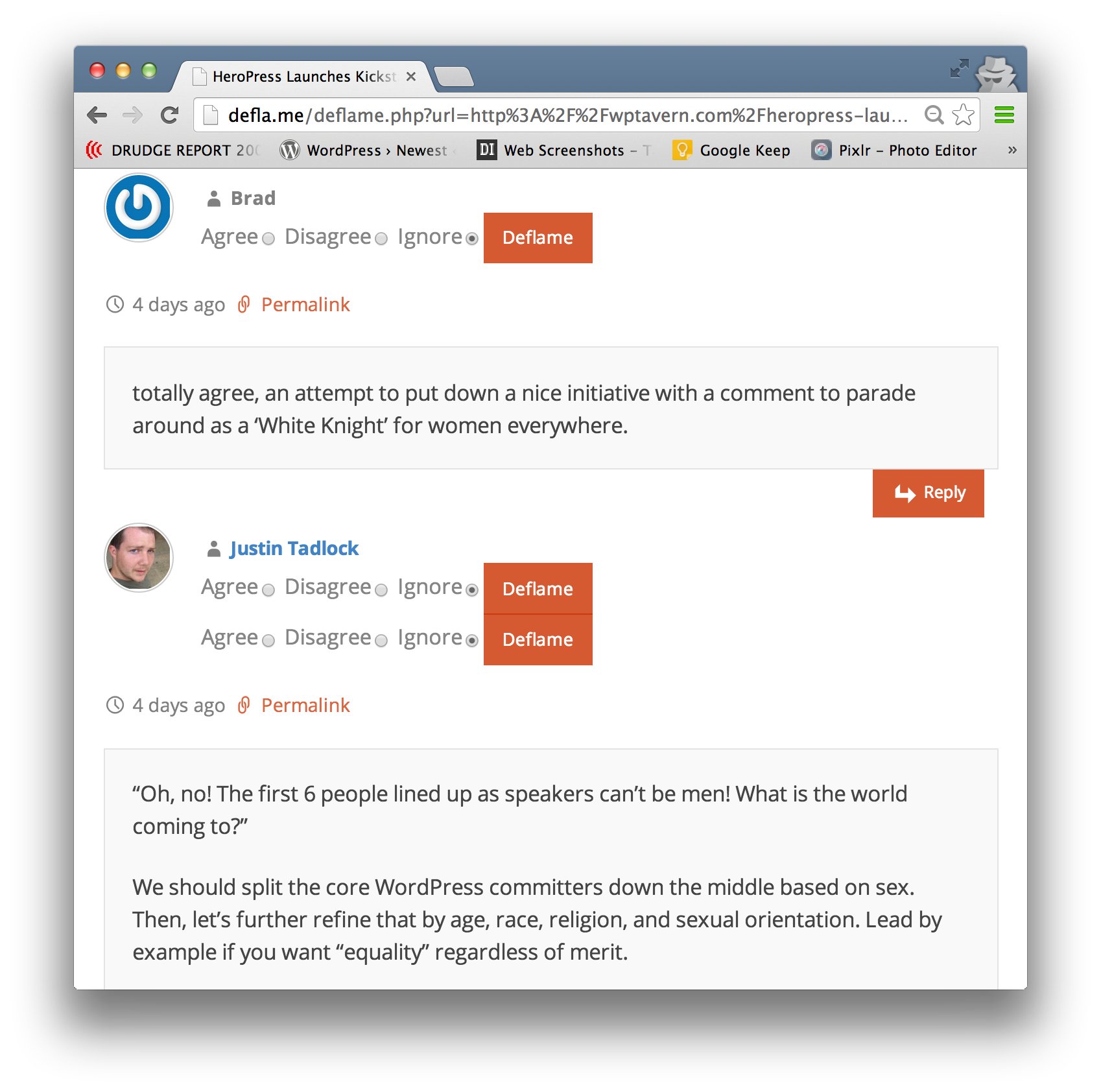Life on the internet is full of controversial debates, people with strong opinions, and trolls, occasionally mixed in with intelligent, engaging conversation. You never know what you will encounter when you venture into the comments section on blogs with open discussion enabled, but that’s the beauty of free expression.
The Tavern has always been a place where anyone is welcome to offer opinions in the comments, even if they’re not fully polished. Oftentimes this results in some quality interaction from community leaders. We use Jetpack comments, but the module is lacking in features that add a more interactive discussion experience between commenters.
Deflame is a new web app, created by Alex Becker, that aims to improve the quality of discourse on the internet. Both the standalone app and the Chrome extension were built to work with WordPress sites, since the platform currently dominates the web. Deflame offers three features that allow users to “ignore asshats,” delineate a side in debate, and share their perceptions of an argument with others via a unique URL.
I tested the standalone version and the Chrome extension, using a recent WP Tavern post regarding HeroPress, which sparked some heated debate. The app adds radio buttons to identify comment authors with whom you agree or disagree. You also have the option to ignore comments.
It’s unclear why sometimes the comments receive two radio buttons, but it’s likely that the app cannot accurately anticipate the correct placement of the buttons due to differences in comment templates. Once you mark your opinions in the comments, clicking the Chrome extension button will present a summarized table at the top of the page. It includes a unique URL that allows you to share your view of the debate with the flames dampened.
Becker hopes that the app will give users a way to frame their positions and perceptions on debates that happen in the comments. “Too often, debates over important issues devolve into reasonable people on both sides attacking the trolls or madmen they perceive as representing the opposition,” he said. “Deflame aims to give commenters on WordPress-powered blogs the ability to rise above this.”
Since the app doesn’t actually affect the website on which it’s being used, it offers an independent way of presenting a user-moderated discussion. Users can show an overview of their opinions, even when a site doesn’t offer interactive voting features for comments.
However, some may not be comfortable with the fact that the app’s share link hides comments that have been ignored. The ability to view all comments is the only way to get the proper context for other comments posted in a debate. If visitors arrive to a site by clicking on a Deflame-generated link, they may not understand that they are only viewing a select group of comments. For this reason, I think an additional button to “show hidden comments” would be useful.
Overall, Deflame is an interesting idea that might make a useful WordPress plugin, if its code licensing permits. The project is available on GitHub. It includes a small list of supported sites, though the extension works reliably on many more that are not included in the list. If you want to test it, check out the standalone Deflame app or install the Chrome extension.


I will admit that I like the idea. If you are writing over a controversial topic then this is needed but if it were opted as a plugin i don’t really see the need. The only reason that I say that is because people would likely misuse it or would simply block those out who don’t agree with them.
Now if the plugin worked on a per user basis then it would be perfect that way the general discussion is available to everyone is stumbles upon it.